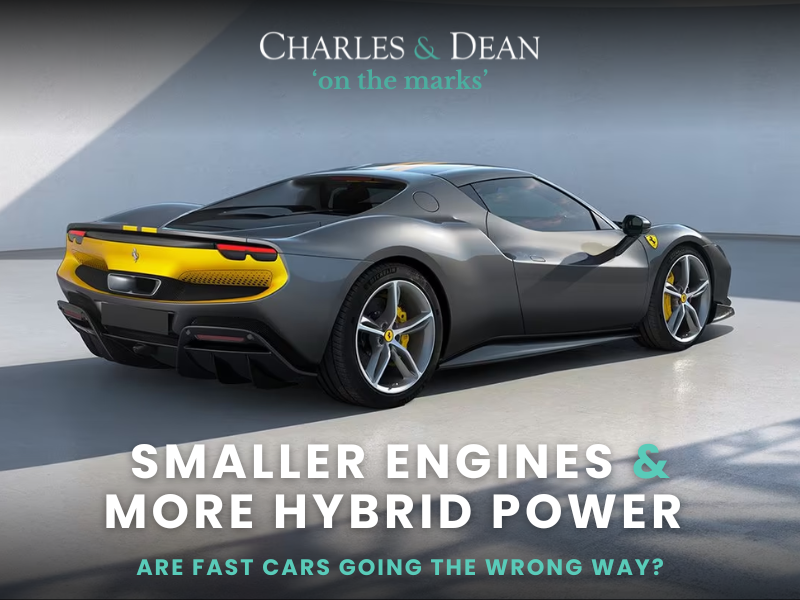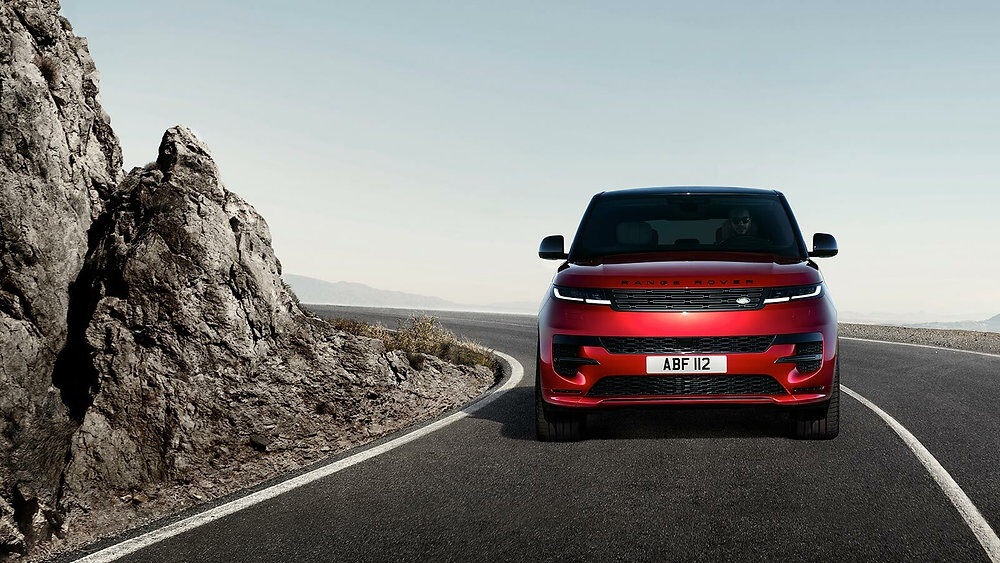
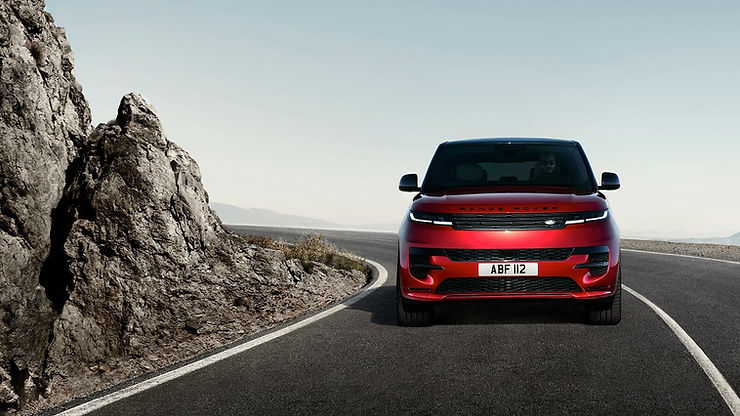
The new Range Rover Sport, unveiled earlier this year, is still a few months away. But we jumped into the passenger seat at Goodwood recently to see how the Range Rover’s sportier twin is shaping up.
Once the poster child of the big-ticket, premium turbodiesel SUV gravy train, a new Range Rover Sport would appear, at first glance at least, to be out of step with the 2022 zeitgeist. I mean, aren’t we all supposed to be going electric, sustainable, and urban-friendly? Just look at BMW’s iX and the imminent Mercedes-Benz EQS SUV, with their near-silent, zero-emission powertrains.
But just as the full-sized Range Rover is changing, so too is the Sport (which uses the same platform and engine options). Yes, this is still a big, heavy SUV reliant – initially at least – on petrol and diesel power. But the electric versions are coming, first with a couple of plug-in hybrids and ultimately with battery-electric variants, likely from 2024. And the Range Rover Sport’s USPs – handsome design, driving fun and outstanding off-road ability – undoubtedly still have huge appeal.
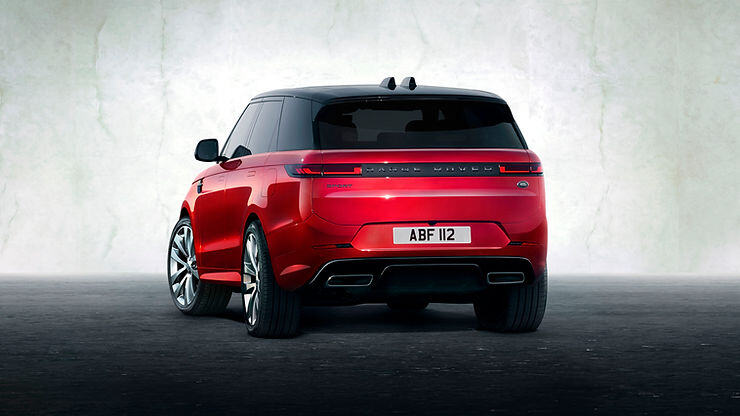
The new car looks to have on-road dynamics licked, with an all-new, much stiffer structure and a suite of new chassis toys (including electric anti-roll control and rear-wheel steering) with which to make it drive like a sports car, or at least as close to a sports car as a luxury SUV with an absurdly high level of off-road ability can reasonably be expected to get.
We rode in the P530 petrol V8 version, and it’s quite a tool. The engine is a BMW-derived unit, modified to Land Rover’s exacting requirements. While running costs will likely be eye-watering given today’s petrol prices, this is a peachy installation in the Range Sport: quick (0-62mph comes up in just 5.4sec), tuneful, torquey and so civilised it’s every bit as happy shuffling around just above idle as it is shredding to the redline.
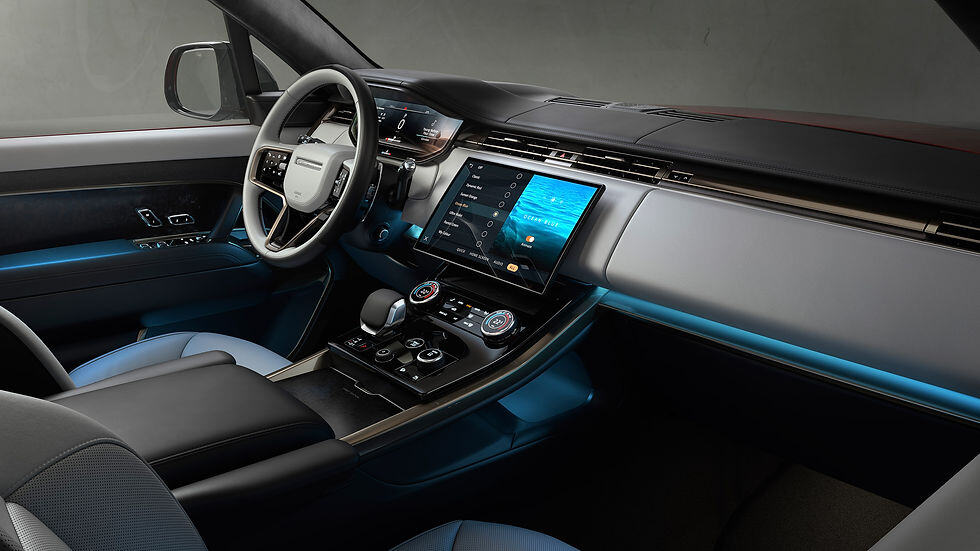
It's a mark of how far the performance SUV has some (and how expertly the new Range Rover Sport has been calibrated, by the same genius who shaped Aston Martin’s remarkable DBX SUV…) that cars like this no longer feel like fish out of water on a racetrack. In fact, the Range Sport relishes the challenge.
Impressive though the braking performance is, it’s through corners and out of them that the new car really shines. The stiffer structure gives everything a more consistent baseline from which to work, and the anti-roll control and rear-wheel steering work minor miracles, helping the car both change direction effortlessly and hold high corners speeds. There’s a tonne of grip too, particularly on the way out of corners, with the car’s intelligent four-wheel-drive system and clever rear differential finding traction even when you’re greedy on the throttle pedal.
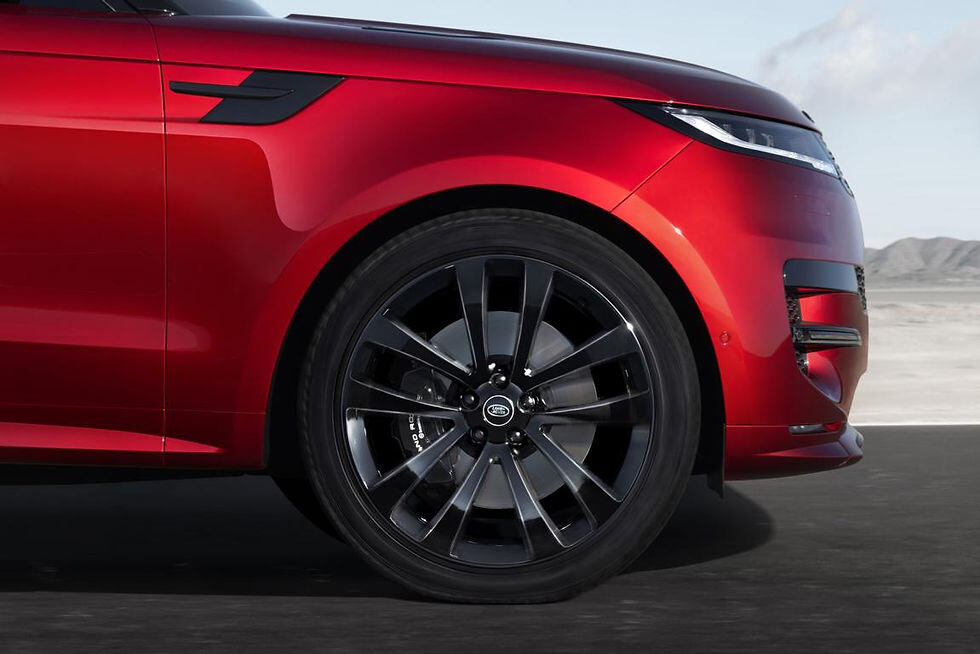
Of course, all of this would be irrelevant were the new Range Rover Sport loud, unrefined and hard work when you’re not in the mood. But that just isn’t the case. When you just need to go places this is a supremely refined machine with great ride quality, an extremely quiet cabin and faultless low-speed manners. The plug-in hybrid versions, of which the 503bhp 510e is top dog (£108k, and with a whopping 69 miles of electric range), will surely boost that impressive versatility further still.
Range Rover Sport P530: £116,190 (range from £80,325), 523bhp twin-turbo V8, 5.4sec 0-62mph, 155mph

Written by
Charles & DeanAt Charles & Dean, we offer finance solutions with a difference. Our focus is on you, providing a variety of competitive independent finance options that support both businesses and individuals in their own unique journey.
Table of contents
Apply for Finance
Let’s start with your name & email
Please provide your details to receive a personalised quote.
Subscribe
Get the latest insights and updates delivered to your inbox weekly.







.png?width=806&height=605&name=Why%20Use%20a%20Car%20Finance%20Broker%20(4).png)


